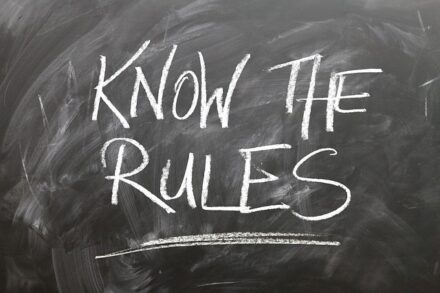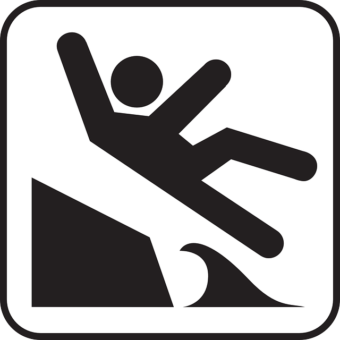This is a continuation from Part 2. Thoughts are based off the article, Are Apostolics Pharisees? written by Gary R. Trzcinski, which appeared in the September 1996 Pentecostal Herald (now called Pentecostal Life, the official magazine of the United Pentecostal Church) which addressed the issue of whether Apostolics (Oneness Pentecostals) were Pharisees. The author gave 29 points as to why they were not.
Below is an excerpt:
| Pharisees never criticized Jesus or His disciples for their physical appearance (hair, modesty, ornamentation). We do not find one verse of Scripture where they ever condemned Jesus and His followers for the way they looked. Many Pharisees were waiting to find one flaw in Jesus so that they could discredit Him and His teachings. If there would have been something wrong, the Pharisees would have found it. But they found nothing. Why? Because there was nothing to find, nothing to criticize.
The Pharisees were somewhat holy looking on the outside but extremely unholy in their hearts. However, Jesus was holy both inside and out. He was the perfect man. “Let us cleanse ourselves from all filthiness of the flesh and spirit, perfecting holiness in the fear of God” (2 Corinthians 7:1). |
Why is it that the Pharisees didn’t criticize their appearance? This argument actually works against what the author has stated about being different from ‘the world.’ If Jesus and the disciples looked distinctly different from ‘the world,’ as the UPC teaches we in North America must do today, then would they not have pointed this out? It is somewhat misleading to state they were looking for one flaw as they pointed out several in Jesus and his disciples. They took note that Jesus ate and spent time with sinners, they reprimanded them for eating with unwashed hands and said Jesus was gluttonous and a winebibber…so would they not have made note of any appearance which stood out from those around them? Could it be that Jesus and his followers appeared like ‘the world’? Or are we to believe there was a difference in the definition of ‘the world’ some 2000 years ago?
By mentioning “hair, modesty, ornamentation” the author appears to want readers to link this to standards taught in the UPCI, as if they were being followed by Jesus and his disciples. Yet not once do we read that Jesus taught against jewelry, make-up, cutting hair and so forth. He was silent on such issues that the UPCI feels are extremely important. Similarly, Jesus did not teach or follow the rules which the Pharisees added to the law.
“The Pharisees were somewhat holy looking on the outside but extremely unholy in their hearts.” Actually, they weren’t just somewhat…Jesus said that they made clean the outside of the cup and platter. Anyone can make themselves look good to others in this manner. Consider that the heart of the Pharisee wasn’t really toward God and Jesus pronounced them dead on the inside, yet they were able to present to others the image of a sparkling clean and holy exterior, one they thought would cause people to be envious and look up to them.
| Pharisees only cleansed the outward appearance but neglected the sinful human heart. They were righteous on the outside but evil on the inside. They were hypocrites (Matthew 23:25-28); but we abhor hypocrisy. Apostolics seek to clean not only the outward appearance but also the heart, mind, and human spirit. Jesus asserted: “Cleanse first that which is within the cup and platter, that the outside of them may be clean also” (Matthew 23:26). A cleansing of the inside will eventually lead to a cleansing of the outside.
The vast majority of our preaching and efforts center on the redemption of the soul. And yet we would be hypocrites if we willfully neglected those passages of Scripture pertaining to cleansing the outward appearance (1 Corinthians 11:4-16; 1 Timothy 2:9-10; 1 Peter 3:3-4). We follow the admonition of Paul to abstain from all appearance of evil so that we would be sanctified wholly- spirit, soul, and body (1 Thessalonians 5:22-23). |
If the inside is clean, then it cannot help but show outwardly–and not simply in our appearance, but more importantly in our actions. This is the work of the Holy Spirit in the believer’s life. This is part of the problem in performance oriented churches- they cause people to believe that they must work to make themselves holy and acceptable to God. Don’t cut your hair or wear jewelry and make-up, be sure dresses and skirts fall below the knees, watch your sleeve length and maybe you will be pleasing to God and accepted. Yet the book of Galatians makes it extremely clear that our righteousness will never come from our own works, but it is by faith in Jesus that we are made righteous in the sight of God. If the law was only to act as a guardian until Jesus came, why would we now need any other set of laws to ‘protect’ us or act as a fence to keep us safe? Think about it. Written laws do not change the person. The Old Testament law did not make the people righteous by obeying it as they were not changed on the inside. No list of rules is going to change us either, no matter how good the intentions.
The author claims that Apostolics “abhor hypocrisy” and yet most of us who have been part of them have seen it in multiple ways. There were the ministers that taught against television and owned one themselves or would otherwise have ways to watch it. They teach women’s hair is to be uncut yet some women hide their trimmed hair by wearing it up. They teach against jewelry but wear similar ornamentation in their hair or on their shoes. In some of their churches men are taught they must be clean shaven but the rule can be temporarily bypassed for those who participate in a Christmas or Easter play. How many times have you heard a minister proclaim how people can shout at a sporting event (some are against attending these) and then compare that to how one is to act in a church service? What about the sermons which state smoking is defiling the temple of the Holy Spirit and yet they ignore where the Bible actually speaks against gluttony? These are just a few of the ways in which hypocrisy has been seen in their midst.
I will close with the thoughts of a friend:
You know, as I think about this, it’s not so much the grace thing, as is the need to have something that can be seen. It’s easier to trust in that which can be seen, it is easier to maintain control over what can be seen. When one is seen doing all that is required, then the pastor can rest assured that he has control over that person. When the standards are broken, then the pastor knows for sure that that person needs reprimanding, and many are quite willing to join in on the flogging! I’ve seen this first hand in my former church, especially with the young people.
It’s harder to let go of the reins and let the spirit have his way. Those in control feel that they must be enforcing something or some kind of rule, etc. I think it comes down to more of a trust issue for many in UPC, afraid to trust in that which can’t be seen, unless there is evidence through obedience.
The Pharisees and Apostolics Part 1
********
Shop at our Amazon store! As an Amazon Influencer, this website earns from qualifying purchases.





